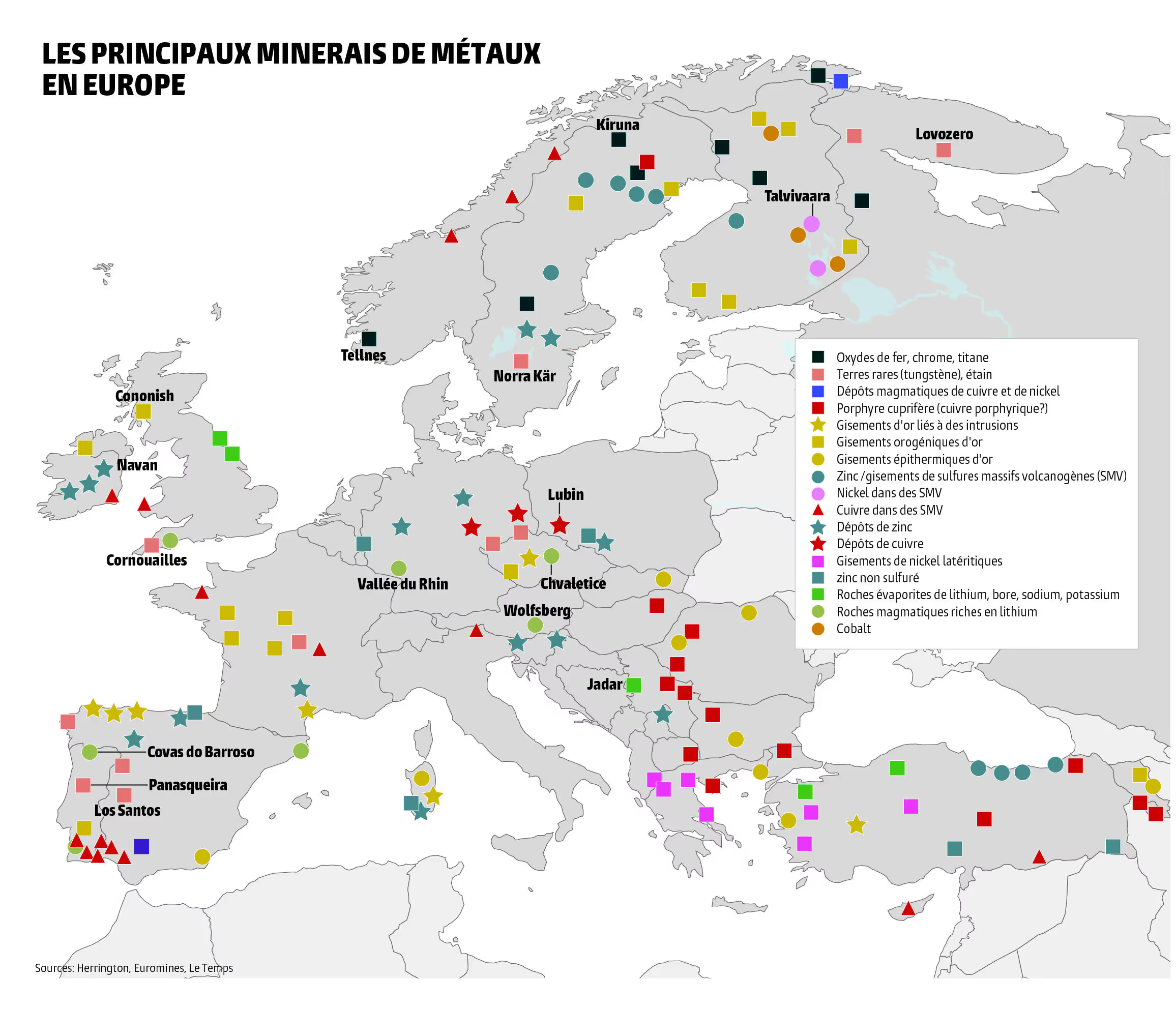“O Benevolent Science, you bring us light, bread, water and life.” These are the words that open the technological Eucharist, led by doctors of the scientific faith. But their light is artificial, their bread and water are poisoned, and life under their command is nothing but slavery. As a mark of adoration, this cliché must be dismantled, and the idol unbolted.
Illustrative image: movie poster Oppenheimer (2023).
I — Science is a surrogate activity that cannot be ignored
The image of Épinal as a poor scientist, giving his discoveries to mankind with disinterest, has greatly served to give science a holy reputation. With the Curies, Tesla and others as moral alibi, it's hard to blame those who claim that science is a priesthood. But is it devoting yourself to the good of humanity to devote your life to the knowledge of a fraction of an atom, to take pleasure in theoretical study, to build (directly or indirectly) death machines? Isn't this type of behavior driven by something other than human happiness?
Let us make an important point at the outset: scientific activity (which obviously includes engineering) is only possible thanks to the existence of a hierarchical and technological society, which frees scientists from vital necessities and allows them to occupy their lives with the quest for knowledge. As such, scientific activity is a pure surrogate activity :
“39. We use the term “surrogate activity” to refer to an activity directed at an artificial goal, invented only to motivate an individual's action and to provide the resulting “accomplishment.” Here is a simple rule for recognizing surrogate activity. Faced with a person who devoted a lot of time and energy to pursuing a goal X, ask yourself this: if they devoted them to meeting their biological needs, by mobilizing all their intellectual and physical abilities in an interesting and varied way, would they really be frustrated by not reaching goal X? If the answer is no, then the pursuit of goal X corresponds to a surrogate activity. Hirohito's work in marine biology is, of course, a surrogate activity. There is no doubt that if he had had to devote his time and effort to interesting, non-scientific tasks to meet his basic needs, he would not have been frustrated by ignoring some details of the anatomy or life cycle of marine animals. [...][1] ”
As a surrogate activity, it offers a derivative for the basic control needs of scientists. But the white coat and status sometimes obscure a simple reality: they are humans, made of flesh, bones and water; and it is in this capacity that the technological system uses their vitality to advance. Since admitting themselves to be a slave to gigantic machinery exploiting an insatiable desire for performance could push them to suicide, they need an alibi — that of the good of humanity.
II — The good of humanity comes last in the order of priorities
The excuse of the good of humanity suggests that science would follow a unanimous logic, a constant push towards this single objective of devotion to the species. That through the magic of a common adherence to this ideal, any scientific advance would have the value of “progress”. So science would be Teleological (determined in essence by the goal it has set for itself). However, several elements contradict the thesis of the good of humanity as the primary motivation of scientists.
- Research depends on the economic investments of businesses and governments.
The innocent little science student will quickly realize that his work will be conditioned on its economic usefulness (the same logic presides over the financing of university laboratories), but whoever supports chooses the objective to be achieved. Just as you don't bite the hand that feeds, you don't reject the ends of the person who distributes the funds. Is the aim of a large private company the good of mankind? No, its aim is to ensure its growth and to become a leader in its own market. Nor can the State claim to exist for the good of mankind. It is in the field of engineering that this industry leader is best observed:
“Your story shows that you identify so much with the management of the plant, its managers and engineers, you have so internalized their interests, that you can even anticipate their needs. Normal, you meet at conferences, demonstrations, you have the same sociability, the same type of travel and leisure. The territory of a technology park is precisely structured to bring researchers closer to bosses, managers and entrepreneurs. Everything contributes to you identifying with their needs and aspirations; you share the same social environment and the same vision of the world. You said it: “We will end up with manufacturers in natural partnership networks.” It is natural for you to be in constant dialogue with the industry. You don't work for society, but for companies. Renault, EADS, Orange are not the company, they are companies. So let me conclude that the requests you are responding to are not societal, but commercial.[2].”
- Scientists are trapped in the double thinking of industrial society.
Doublethink can be defined, in this case, as separating individual beliefs from professional activity. If the irresponsibility of scientists in the face of the consequences of their work is possible, it is because a consensus around the supposed neutrality of science has triumphed (and scientific neutrality is no more valuable than technological neutrality — see Puncif no. 3). Doing a deleterious task would therefore be isolated from the rest of life. Faced with this, Günther Anders replies:
“The false allegation that we have been taught and seems valid to all of us, that we must be moral in the actions of our daily lives, but that as workers we do not have to bear responsibility for the purposes and effects of our actions, or rather that we should not and do not have the right to bear responsibility for them, is an outrageous and unbearable hypocrisy. Hence the rule: the wall that has been built between what we work on and what we do in everyday life, we have to dismantle it and unify the two spaces “work room” and “living room”. Morality is either good in both rooms or it's worthless.[3].”
In an interview with Celia Izoard, an engineer came to a similar conclusion:
“When you're an engineer, you manage to keep something quiet about yourself, or leave it out of the workplace. The sphere of work is entirely caught up in instrumental rationality. That's how it is, the calls for projects, the calls for tenders are there, we follow them. Also added is the idea that what you do will be done by someone anyway, so you might as well do it in a less stupid way than if it were someone else. While in reality, and particularly today with the development of artificial intelligence, France is almost lacking in engineers. If 100 engineers or researchers from the Toulouse ecosystem decided to stop making algorithms and robots, it would break everything. It is obvious that each individual resignation brings something[4].”
It should be noted that, contrary to what the engineer mentioned above suggests, resignations in France, although appreciable, would not be enough to do all the work. Under the influence of the technological system, if the France subsystem does not take care of it, another State will take care of it with great pleasure.
- Allegedly neutral scientific activity is driven by its own end.
The search for the result is what mainly motivates scientists. Freed of any responsibility for the use of his creations, the false moral neutrality of his activity serves as an excuse for him to push his abilities to the fullest. If not, how can we explain the creation of the atomic bomb, V-2 missiles, machines designed to replace man and destroy nature, and other atrocities? Putting the blame on the user is very convenient here, and the creator of death who is upset by the use of his creations is nothing more than a hypocrite. The good of humanity then serves, like the patriotism of Wernher von Braun, as an easy excuse masking the need to go to the end of scientific activity, to satisfy psychological and ego needs:
“In 1971, Einstein wrote that: “All of our much-praised technological progress and even civilization in its entirety are like an ax in the hands of a psychopath.” It is therefore difficult to give an altruistic motivation to Einstein's work. Einstein certainly realized that any advance in physics could have practical applications, and thus promote technological progress, which he himself compared to an ax in the hands of a criminal. However, he continued to work in theoretical physics well into old age — even after witnessing the development of the nuclear weapons to which his research contributed. So why didn't he stop working? It was undoubtedly an obsession. In the twilight of his life, he noted, “I can't get away from work. He is inexorably holding me prisoner[5].””
III — Scientific discourse is an ideological discourse
According to Jules Monnerot, ideology:
“provides another version of the relationship between the motivated and what motivates them. The materials that compose it and that it organizes are “daytime” materials, materials in full light so to speak: they are all confessed, more than confessed, honorable. They constantly refer to values celebrated in a society. [...] Ideology translates the aspirations of the natural being into ethical and social terms.[6].”
The few elements developed above are sufficient to make the dogmas of goodness and neutrality of science uncertain. According to Monnerot's definition, they really play the role of “another version of the relationship between the motivated and what motivates him”, and therefore give free rein to a ideology scientist. Thus, contrary to what is generally believed, the objective of science is not the “good of mankind” but rather to grow and spread at the expense of nature and human freedom.
With this objective now determined, it is becoming easier to unmask the discreet maneuvers of those who call for the “repoeticization” of science, to “revolutionize” our relationship with reality (role devolved in France to Aurélien Barrau). But can we repoeticize what from the beginning was asserted as a predatory work of control and exploitation of life?
One thing is clear to us: supporters of soft science like Barrau are there to counteract the loss of faith of ordinary people by giving the illusion of a possible self-correction of the system (see Poncif no. 4 on the good sides and the bad sides of technology). Their ideology is a theology. Under pain of becoming heretics, scientists cannot question the foundations of their faith; at best, they will profess a reformed faith.
In short, all the ideas identified here allow us to reach a practical conclusion: Since scientific discourse is an ideological discourse, it must be answered ideologically and not scientifically.
“We therefore have to defend ourselves against the imposters of all dogmas, religious or scientific, whether they hide under the priest's dress or the scholar's coat. What we have to remember is that Civilization, whether Egyptian or Roman, has always had the priest as its instigator, that it was the priest and the monk who first practiced Science, that Religion and Science have a goal; that of taking man away from the natural sense, and, by encouraging him to reform his origin, to perpetuate his slavery and to constantly increase it.[7].”
Technical propaganda laughs at technical counter-arguments. A Jean-Marc Jancovici, lavishing his nuclear faith on a crowd eager to believe, would enjoy seeing his enemy get lost in the field of science. But anti-tech refuses the enemy's game, it refutes its rules, its language, its power. To lose by complying would mean consenting to slavery, and that is unacceptable to us.







